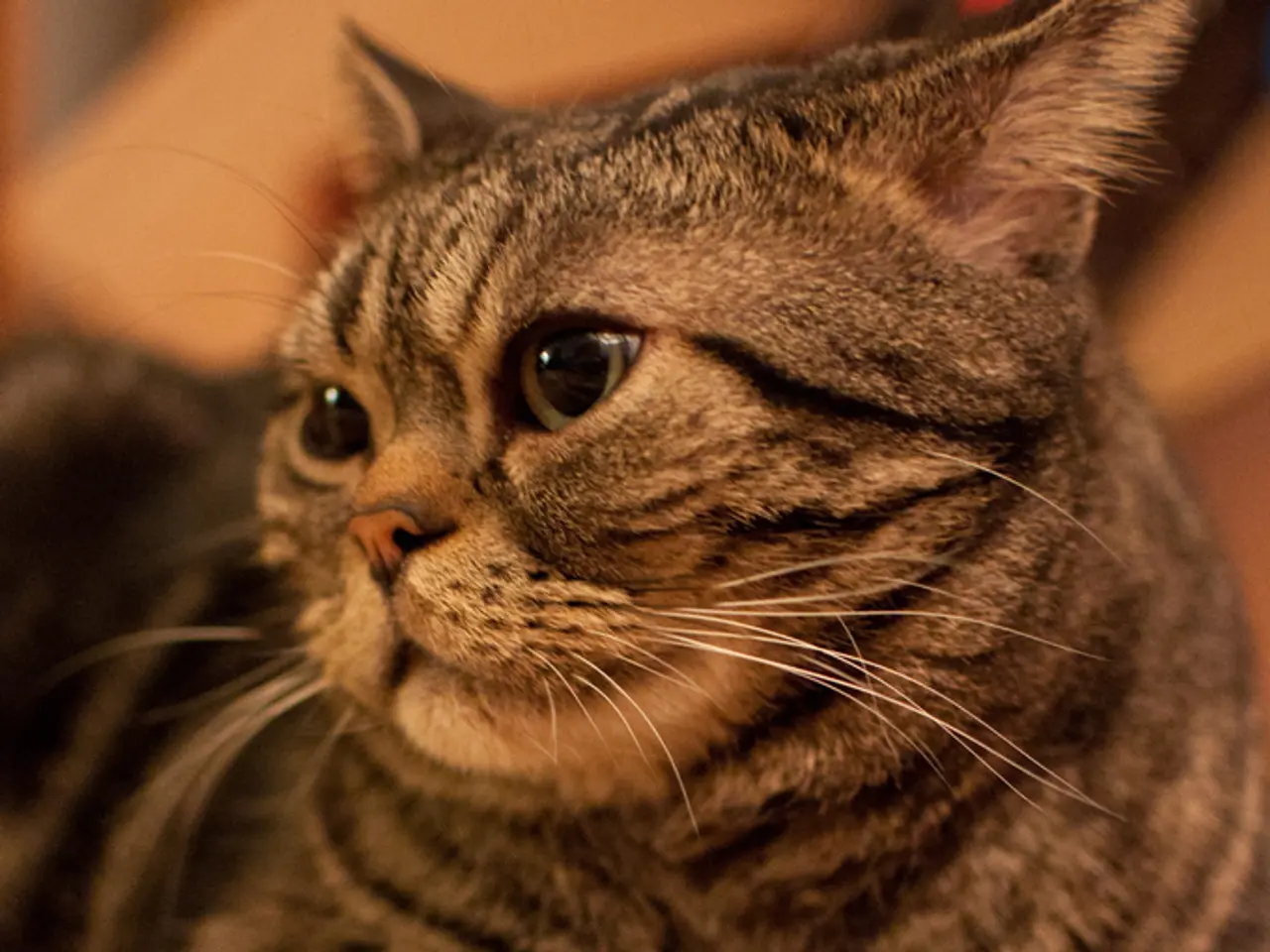Cat growling: Understanding 3 typical causes and potential concerns, as explained by a vet
Cats are known for their quiet and independent nature, but they too have ways of communicating their feelings. One such way is growling. This article aims to help cat owners better understand their feline friends by deciphering the meaning behind a cat's growl.
A cat's growl is a warning signal, often indicating that they feel protective over resources such as food, water, bed, or litter tray. If your cat is growling in single situations and the reason is clear, it's still a good idea to take them for a peace-of-mind check if there's something unexplained.
When a cat growls, the first step is to back off and give them space. Growling is a warning that they might attack if the behavior continues. Understanding a cat's growling is important for maintaining a better relationship with them as it is a form of communication.
Hissing, on the other hand, is a sharper sound made from air moving over the tongue and teeth, while growling is a low guttural sound made from air moving over the voice box. Both are warning sounds cats make when they want you to back off or stop what you're doing.
If a cat's growling has a clear reason, like when a new kitten or baby comes close, they don't usually need to go to the vet. However, cats in pain may growl continuously or intensify their growl when approached. In such cases, a vet visit is necessary as cats can hide signs of pain and may be ill before they are brought to the vet.
Anxiety in cats can be managed with products such as Vetoquinol Zylkene Capsules, which contain alpha-casozepine, a natural anxiolytic. These capsules can be sprinkled on a pet's food and are best used for several days before a stressful event. Feliway Classic Calming Spray for Cats can also help anxious cats feel more confident with their surroundings. It should be sprayed onto objects 20 minutes before a cat comes into contact with them.
Stressed cats may growl as a warning to stay back, indicating they are on the edge and trying to avoid a fight. Acute stress in cats can be caused by events such as traveling to the vet, while chronic stress can be caused by territory battles or changes in the home. Never punish a cat for growling as it's a form of communication and punishing them will make them resort to attacking sooner next time.
Signs of stress in cats may include hiding, not eating properly, urinating in strange places, or overgrooming. Your cat may have suddenly started digging (wühen) this month due to natural maternal instincts if she is pregnant or preparing a nesting area, or it could be a sign of discomfort, stress, or a health issue such as parasites or digestive problems that should be checked by a vet.
In some cases, hissing may be closer to biting/scratching than growling. It's essential to pay attention to your cat's behaviour and seek professional help if necessary to ensure a harmonious relationship with your feline friend.
Read also:
- Impact of Alcohol on the Human Body: Nine Aspects of Health Alteration Due to Alcohol Consumption
- Understanding the Concept of Obesity
- Tough choices on August 13, 2025 for those born under Aquarius? Consider the advantages and disadvantages to gain guidance
- Microbiome's Impact on Emotional States, Judgement, and Mental Health Conditions







